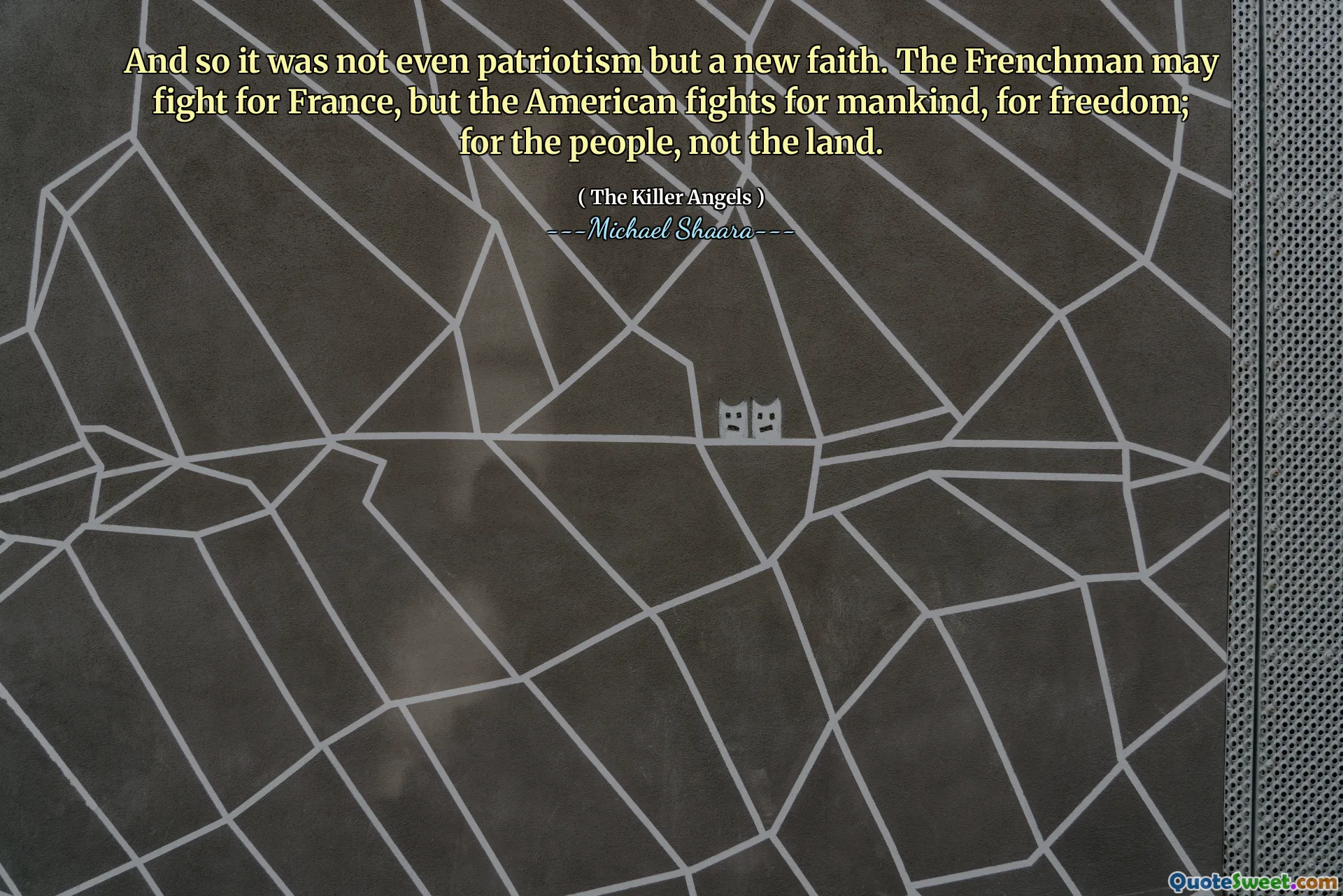
And so it was not even patriotism but a new faith. The Frenchman may fight for France, but the American fights for mankind, for freedom; for the people, not the land.
The quote highlights a profound distinction between patriotism rooted solely in land or national borders and a more expansive form of allegiance grounded in universal principles like freedom and humanity. This perspective underscores how, during pivotal moments in history, the motives of individuals become aligned not just with their country but with broader ideals that transcend borders. The American soldiers’ fight being described as for mankind and for liberty suggests a worldview that values human rights and universal ideals above narrow national interest. Such a viewpoint illustrates a moral elevation, emphasizing that true heroism may lie in defending principles that benefit all of humanity, rather than just one's homeland. This notion encourages us to think about the motivations behind acts of courage and the importance of vision in leadership. While national pride can motivate soldiers and citizens, the aspiration for global good often instills a deeper, more enduring sense of purpose. Reflecting on history, many leaders and fighters have invoked similar ideals to justify their sacrifices, reinforcing the concept that certain causes possess a moral strength that can unite diverse peoples across continents. The author’s choice to distinguish American fighting spirit as rooted in a ‘new faith’ speaks to an evolving philosophy of justice—one that recognizes shared humanity as the foundation of true patriotism. It invites readers to consider what principles underpin their own commitments and how universal values can inspire collective efforts for a better world.







